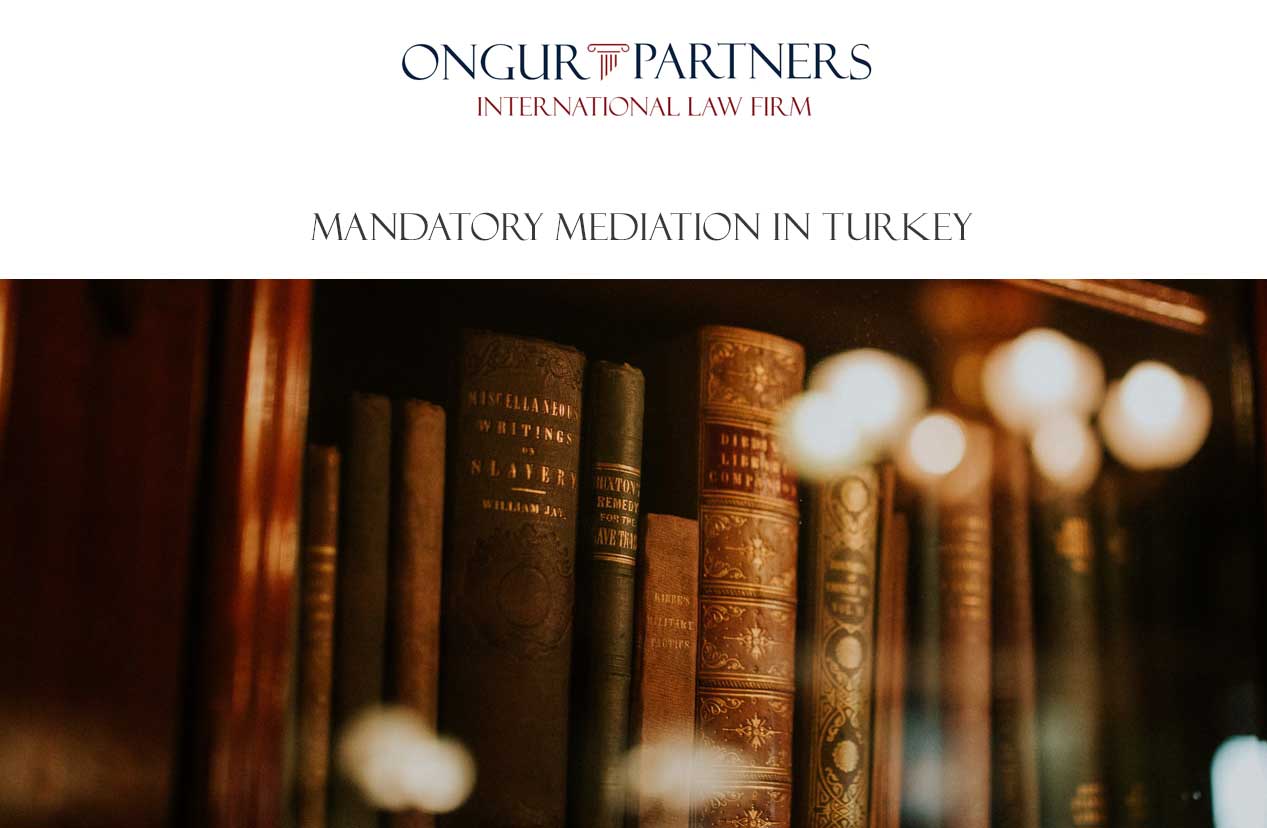Mandatory Mediation in Turkey
Mediation is an alternative dispute resolution method that is widely used throughout the world and the mediation process is generally described as “a negotiation process facilitated by a trusted neutral third party“. It should be noted that this “trusted third party” is called as “mediator” and it is possible to see the involvement of more than one mediator in some specific and/or complex disputes.
It is commonly acknowledged -both in literature and practice- that mediation is broadly chosen because it is “voluntary”, “independent”, “simple”, “impartial” and “fast”. Therefore, it is increasingly seen in practice that several jurisdictions have introduced mandatory mediation to resolve certain disputes before the parties can resort to litigation.
In this context, in some cases, some judicial systems are highly criticized as they are said to force disputing parties to apply mediation before starting the litigation process and this doesn’t comply with the feature of “voluntary”. Because, in the said jurisdictions, where there is mandatory mediation, the mediation process is a prerequisite for resorting to the litigation.
Turkey recently joined the jurisdictions that oblige disputing parties to mandatory mediation processes for certain disputes. The legislation introduced by Turkey to enable this system are specified below:
- The Law on Mediation in Civil Disputes numbered 6325 came into force on 22 June 2013. With the enactment of the Law, mediation became more popular in Turkish jurisdiction.
- The new Law on Labor Courts numbered 7036 was enacted on 25 October 2017. According to Article 3 of said Law, mandatory mediation became a prerequisite for litigation of monetary claims raised by both employees and employers within labor disputes.
- Law No. 7155 entitled “Law on the Procedure of Initiating Debt Enforcement Proceedings For Payment Claims Under Subscription Agreements” was published in the Official Gazette dated 19 December 2018 and numbered 30630. According to Article 20 of this Law, which introduced the new Article 5/A of Turkish Commercial Code numbered 6102, “commercial disputes” the subject matter of which is a debt or indemnity claim requiring the payment of a sum of money will be subject to mandatory commercial mediation. That is to say, any party that wishes to bring formal court proceedings relating to commercial payment claims is initially to go through the applicable mandatory mediation proceedings.
It is clear from the above-mentioned provisions that disputing parties are obliged to apply to a mediator before filing a lawsuit for certain disputes. As a result, if a party directly resorts to litigation failing to fulfill this obligation, Turkish courts dismiss the application on procedural grounds.
It must be noted that the appropriateness of this mechanism is questioned given the voluntary character of mediation in particular. The concern is that forcing disputing parties to mediate as a prerequisite to the litigation process by way of mandatory mediation runs against the defining voluntary nature of this process. On the other hand, it can be claimed that the voluntariness feature is still preserved under mandatory mediation because the parties are free to end the process and move on to litigation if they fail to reach a settlement.
The debate on whether “voluntary” mediation should be made mandatory is likely to continue for some time, considering the recent rumors of a prospective expansion of the mandatory mediation procedures to include other areas such as family law.



